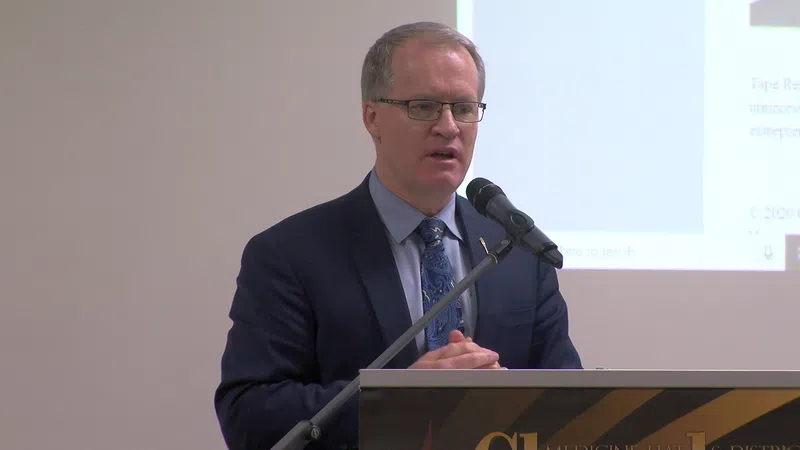
Red tape reduction minister hears from local governments, business community
MEDICINE HAT, AB – Since rising to power last spring, the UCP government has touted their new Ministry of Red Tape Reduction as helping to save everyday Albertans time and money.
On Tuesday, local stakeholders met with associate minister Grant Hunter to discuss what’s been resolved and what future regulations must be tackled head on.
“This is something that’s a major plank of our government to get out of the way of our job creators and our innovators, and that’s exactly what we’re doing,” said Hunter.
